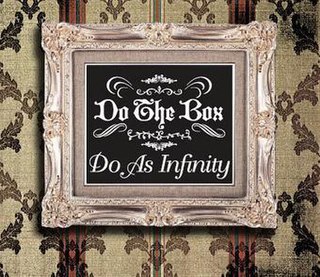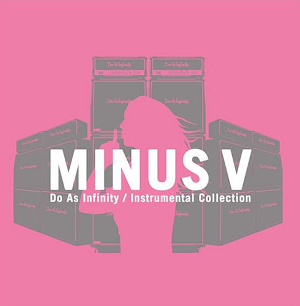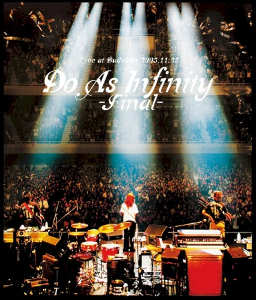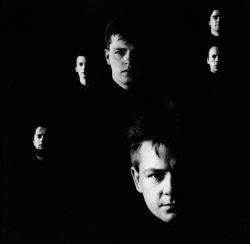An instrumental or instrumental song is music normally without any vocals, although it might include some inarticulate vocals, such as shouted backup vocals in a big band setting. Through semantic widening, a broader sense of the word song may refer to instrumentals. The music is primarily or exclusively produced using musical instruments. An instrumental can exist in music notation, after it is written by a composer; in the mind of the composer ; as a piece that is performed live by a single instrumentalist or a musical ensemble, which could range in components from a duo or trio to a large big band, concert band or orchestra.

"Yesterday" is a song by the English rock band the Beatles, written primarily by Paul McCartney and credited to Lennon–McCartney. It was first released on the album Help! in August 1965, except in the United States, where it was issued as a single in September. The song reached number one on the US charts. It subsequently appeared on the UK EP Yesterday in March 1966 and made its US album debut on Yesterday and Today, in June 1966.

Michel Jean Legrand was a French musical composer, arranger, conductor, and jazz pianist. Legrand was a prolific composer, having written over 200 film and television scores, in addition to many songs. His scores for two of the films of French New Wave director Jacques Demy, The Umbrellas of Cherbourg (1964) and The Young Girls of Rochefort (1967), earned Legrand his first Academy Award nominations. Legrand won his first Oscar for the song "The Windmills of Your Mind" from The Thomas Crown Affair (1968), and additional Oscars for Summer of '42 (1971) and Barbra Streisand's Yentl (1983).

The Surfaris are an American surf music band formed in Glendora, California, in 1962. They are best known for two songs that hit the charts in the Los Angeles area, and nationally by May 1963: "Surfer Joe" and "Wipe Out", which were the A-side and B-side of the same 45 rpm single.

Do As Infinity is a Japanese pop and rock band that formed in 1999 with three members: vocalist Tomiko Van, guitarist Ryo Owatari, and guitarist and composer Dai Nagao. The band's name is sometimes abbreviated as DAI, alluding to the fact that Do As Infinity was named after Nagao. Signed to Avex Trax, the band released their debut single "Tangerine Dream" on September 29, 1999, followed by three more singles between 1999 and 2000, which appeared on their debut album Break of Dawn (2000). In December 2000, Nagao decided to devote all his time to composing the music and no longer appeared at live events. Five more studio albums were released between 2001 with New World and 2005 with Need Your Love.

Alan Price is an English musician who first found prominence as the original keyboardist of the English rock band the Animals. He left the band in 1965 to form the Alan Price Set; his hit singles with and without the group include "Simon Smith and the Amazing Dancing Bear", "The House That Jack Built", "Rosetta" and "Jarrow Song". Price is also known for work in film and television, taking occasional acting roles and composing the soundtrack to Lindsay Anderson's film O Lucky Man! (1973). He was inducted into the Rock and Roll Hall of Fame in 1994 as a member of the Animals.

The 32-bar form, also known as the AABA song form, American popular song form and the ballad form, is a song structure commonly found in Tin Pan Alley songs and other American popular music, especially in the first half of the 20th century.
The use of music at sporting events is a practice that is thousands of years old, but has recently had a resurgence as a noted phenomenon. Some sports have specific traditions with respect to pieces of music played at particular intervals. Others have made the presentation of music very specific to the team—even to particular players. Music may be used to build the energy of the fans, and music may also be introduced in ways that are less directly connected with the action in a sporting event.
"Week!" is the ninth single by Do As Infinity, released in 2001. The B-side, "Tsuredzure Naru Mama ni", is the only studio-recorded song by the guitarist Ryo Owatari, who also wrote the lyrics. The melody parallels that of song "Yesterday & Today". It was used as the theme song for the drama Yome wa Mitsuboshi.

Do the Box is Do As Infinity's album box set after its disbanding. 10,000 copies were made, and each box has its own number printed on itself. It was released among five other different Do As Infinity items on the same day. The box included the six studio albums the band had previously released, as well as a bonus DVD named Do The Works. Do The Works contained two sections: the first one was a documentary of Do As Infinity's activities over the six years they were active, and the second section compiled the commercials for all of their CDs, starting from their debut single, "Tangerine Dream" up to Do the A-side.

Minus V is an instrumental collection by Do As Infinity released after its disbanding. It was released among five other different Do As Infinity items on the same day. This CD consists of mostly previously unreleased instrumental versions of Do As Infinity's songs. The "V" in name of the album is speculated to be the short for Tomiko Van, the lead singer of the band, or vocal because there aren't any of Tomiko Van's vocals in the CD.

Do As Infinity: Final is the last live-recorded concert of Japanese band Do As Infinity before they disbanded in 2005. It took place in Budokan on November 25, 2005. The third disc contains bonus tracks featuring various live recorded songs from Do As Infinity's past live shows.
Oobu Joobu was a radio show created, directed and presented by Paul McCartney. It was described by McCartney as "wide-screen radio", and consisted McCartney hosting a mix of various demos, live tracks, outtakes, rehearsals, and other unreleased material from his solo career, plus tracks by other artists that served as inspiration for McCartney, all wrapped around behind-the-scenes stories and 'chat'. The program aired in 1995 on the American radio network Westwood One, running for 15 episodes broadcast between May and September. The show's name was inspired by a BBC production of Alfred Jarry's Ubu Cocu.
"I'm Shipping Up to Boston" is a song by the Celtic punk band Dropkick Murphys, with lyrics written by folk singer Woody Guthrie.

The Little Mermaid: Original Motion Picture Soundtrack is the soundtrack to the 1989 Disney animated feature film, The Little Mermaid. It contains the songs from the film written by Alan Menken and Howard Ashman, as well as the film's score composed by Alan Menken. The score was orchestrated by Thomas Pasatieri. The album has achieved multi-platinum sales and won the Grammy Award for Best Recording for Children. The album includes recordings of the music that won the Grammy for Best Instrumental Composition Written for a Motion Picture or for Television, the Academy Awards for Best Original Score and Best Original Song and the Golden Globe Award for Best Original Score.

On Her Majesty's Secret Service ("OHMSS") is the soundtrack for the James Bond film. It was composed, arranged, and conducted by John Barry; his fifth in the series.

"Yesterday's Men" is a song by the English ska and pop band Madness, released on 19 August 1985 as the lead single from their sixth studio album Mad Not Mad (1985). It was written by Graham McPherson and Chris Foreman, and produced by Clive Langer and Alan Winstanley. The song spent 7 weeks on the UK Singles Chart, peaking at number 18. The song was edited for release as a single, the album version being some thirty seconds longer. A music video was filmed to promote the single, directed by Chris Gabrin.
"Break a spell" is the 14th single released by the J-pop singer Mami Kawada. The track is used as is the second ending theme song of the anime television series Tokyo Ravens.

Mai Kuraki x Meitantei Conan Collaboration Best 21: Shinjitsu wa Itsumo Uta ni Aru! is the fourth greatest hits album by Japanese singer-songwriter Mai Kuraki. It was released on 25 October 2017 by Northern Music, in celebration of Kuraki's long-time collaboration with the Japanese animation Case Closed. The album features all the songs Kuraki had written for the animation.












